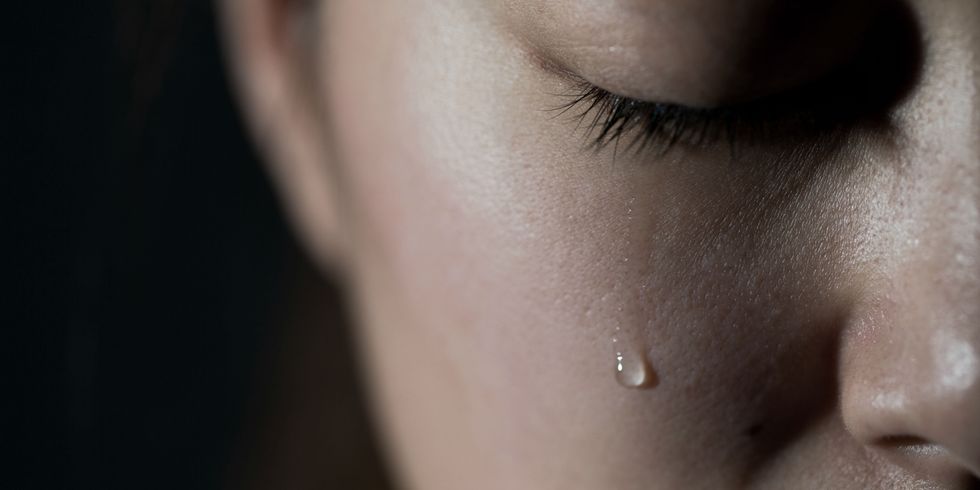It’s past midnight on a Thursday as I stretched my arm out, remote in hand, and gingerly pushed the off button. I was greeted by a white static noise emanating from the television that’s been on for hours. A sole tear drop trickled down my face, snaking its way downward, controlled by not only the everyday force of gravity, but by the immense gravity of the situation; for I had just finished the last episode of Thirteen Reasons Why, and the image of my own personal struggle with suicide appeared in my mind. I’ve written a suicide note before, and amongst the “sorry”s and “thank you”s, littered between the “I can’t do this anymore”s and the “I’m done”s, were the names of people, and their role in my life, in my death.
Thirteen Reasons Why, originally a book written by Jay Asher, describes the complex story of a girl and the tapes she left behind after her suicide. There are 13 tapes, 13 different instances and people that caused Hannah to kill herself. Netflix recently released a show based on the book that everyone seems to be talking about, so I thought about watching it. Having read the book the previous year, prepared for the omnipresence of a deep, dark depression that radiated about the story, I moved my curser over the ‘watch now’ button, and clicked.
By the time I realized how close to home the story hit, I was too immersed in the show to stop, so I continued and each episode stabbed me with an emotional dagger. I was so psychologically caught up in the show that it hurt, it stung me. I couldn’t handle it. I cried. I felt for Clay. I felt for Hannah. I know that feeling, that hopelessness. I have been there, and shows like this bring me back the lowest moments in my life. They bring me back to my haunting past. They force me to remember the things I so desperately try to forget—the things I drank to forget, the things I starved myself to forget.
“Think to yourself… how would it feel to have your name in a suicide note. Now think, what if your name was written there because you were the reason for their death? How traumatic to think of, but I almost did that.” An excerpt from my high school journal, September 26th 2011, describes the dark feelings of writing a suicide note. Lucky for me, I ripped up that note in the few moments after it was written. It was never seen or heard from again, but the thoughts and reasons for writing it still remained. I wanted people to know that it wasn’t just me, but their actions, their impact on my life drove me to do it. I wanted them to hurt as much as me. I wanted them to feel the isolation that they caused. I wanted them to know.
If you want me to be honest, after I wrote the note I read and reread it. Each and every read, I bore the torture of all the people whose names would be forever marked as the reason for my death. I identified with the tenderness of isolation, self-blame, and guilt. Twisting and tightening, the emotions brought about by the note alone caused me to rip it up. I had the ability to scar people with my last message—the ultimate revenge—but this is where Hannah Baker and I differ: I refused to damage someone like they did me. That is why I don’t use any names when I write about my life. I don’t want to publicly shame anyone because I’ve been there, and no one else should. No one, not even my worst enemies, deserve to cuddle, like I had, with the aura of an intense pain, so numbing, so burdening, that it leads you to take your own life.
Thirteen Reasons Why is not just about suicide or the story of a girl’s final words, but about the gravity of a person’s impact on another’s life. No one really understands the magnitude of their influence, and it’s stronger than you think because it’s impossible to honestly know what’s going on in a person’s life. I didn’t present many warning signs: grades weren’t slipping, involved in extracurricular activities, a varsity basketball athlete, still did things with “friends.” However, while my body shuffled into the school doors every day, my mind was absent. No one really seemed to understand what I was going through, their role in it. I always wondered how they’d react if I sat them down and told them exactly how their deeds nearly drove me to suicide; the main reason I didn’t was because I believed most of them would react like the characters in the show—with denial and invalidation.
You have to think about the enormity of your impact on other’s lives, and that’s what I believe is the message everyone should receive from this show. You never know how much your actions can affect someone. Maybe one kind statement, a compliment, a validating action, or a loving hug can save someone from the worst of all ends. Things add up, be it negative or positive, and lead people one way or another. So, say something nice everyone once in a while. Go out of your way to talk to someone because you never know, you could save their life by simply asking them how they are.
















